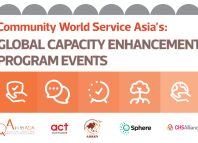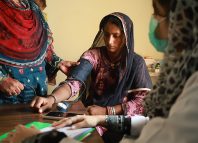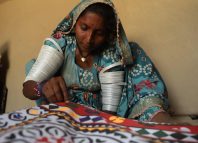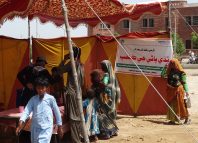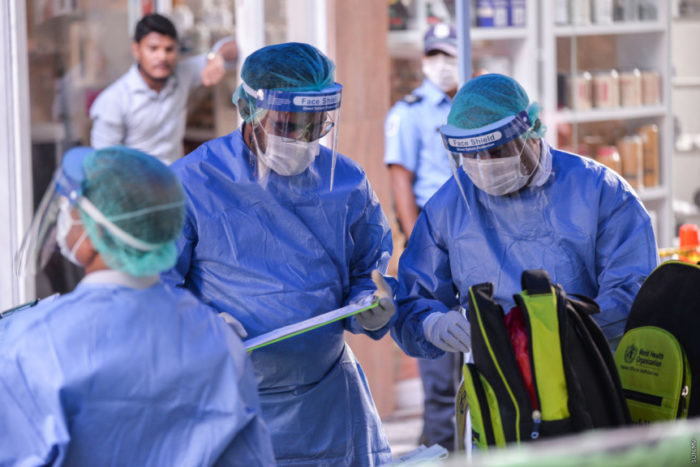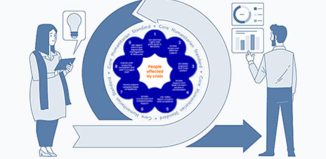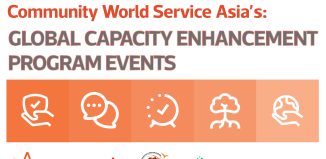Exploring the key role of coordination in the global and regional humanitarian policy dialogue on COVID-19 Response
Photo Credit: Sun/Fayaz Moosa
The COVID-19 pandemic poses unprecedented challenges to the global humanitarian sector. At a time like this, coordination among governments, the non-profit sector, the civil society and other partners is imperative to ensure that those most affected by the crisis are well supported.
COVID-19 has affected everyone without exception and this is a very unique moment in our history. All of us present today, networks, organisations and individuals, need to ask ourselves what our value addition as humanitarian practitioners is in this difficult time,
said Takeshi Komino – Secretary General, Asian Disaster Reduction and Response Network (ADRRN), while moderating the webinar on ‘Humanitarian Coordination during COVID-19’ that was jointly hosted by Community World Service Asia (CWSA) , International Council of Voluntary Agencies (ICVA), Asian Disaster Reduction and Response Network (ADRRN) and Humanitarian Forum Indonesia (HFI) on June 11th, 2020.
The webinar focused on discussing the impact of the current pandemic on the future of the humanitarian sector and its coordination aspects. During the 90-minutes of the webinar, speakers and participants discussed good practices, challenges, and gained insights of different humanitarian networks and communities working on the ground in response to COVID-19.
Qingrui Huang, Acting Regional Representative for Asia and the Pacific at ICVA, Thailand, Hafiz Amirrol, Network Coordinator at ADRRN, Malaysia and Dear NB Sinandang, Communication and Partnership Manager, HFI participated as key speakers in the webinar.
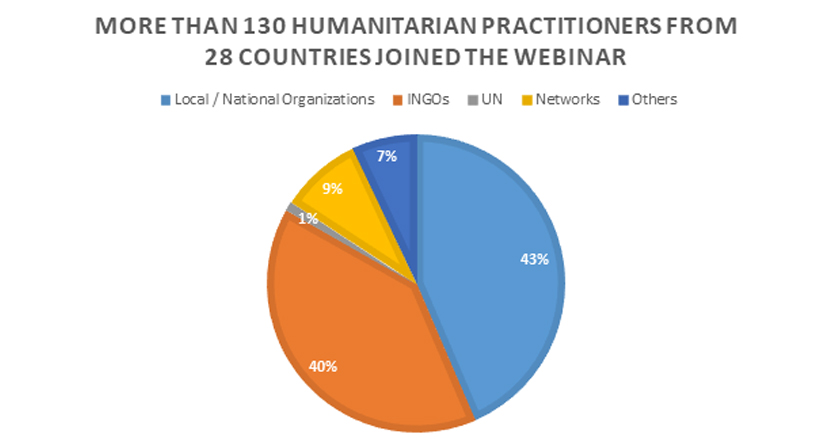
Channeling awareness raising during COVID-19 response
Awareness-raising on COVID-19 in local languages with communities was highlighted as vital for communities to better understand the problem and to take the necessary actions needed to prevent being infected.
Members have come up with effective and innovative ways to interact with communities such as the launch of Covid-19 Car with a voice enhancer. The team travels to remote communities and shares knowledge of Covid-19 with regards to measures that can be taken within households and communities to prevent the spread of the virus,
shared Dear.
Given the possibility that the pandemic can continue for a longer period of time, it is appropriate and necessary to address the actions, skills and capability at both the personal and institutional levels to promote the response of the humanitarian community to the pandemic. Qingrui highlighted the importance of maintaining pre-existing relations as they are key to promote effective and efficient coordination at such a time.
When a country or region is struck by some catastrophe, we cannot establish new partnerships after the tragedy occurs, but rather we establish stronger coordination with our pre-existing partners and stakeholders to participate in joint ventures and remedies. We have also seen donor organisations advocating with their respective governments to provide funding for vulnerable groups and most affected populations.
As well established now, COVID-19 is affecting different people in different ways. Not everyone is affected in the same manner. People with pre-existing weak or complicated health conditions, or the elderly will react to the virus differently than those that are physically healthy and younger in age per se. Therefore, identifying and finding out these pre-existing conditions make all the difference while responding to a unique crisis as such.
This is one of the reason why localisation in mandatory in the Covid-19 response,
says Takeshi.
Many national and local organisations in the Asian region have adopted innovative advocacy and creative communication activities to best reach and impact the communities they are targeting.
We have seen member organisations engaged in broadcasting health awareness messages, publishing creative infographics and launching videos and short animations,
expressed Hafiz Amirrol,
This pandemic has pushed national and local organisations to do things differently for better risk communications and meaningful localisation. Owing to the reality of restricted travel due to the lockout scenario, we have seen improved localisation leadership. One of the best and effective ways of transferring information and coordination is through the local leaders.
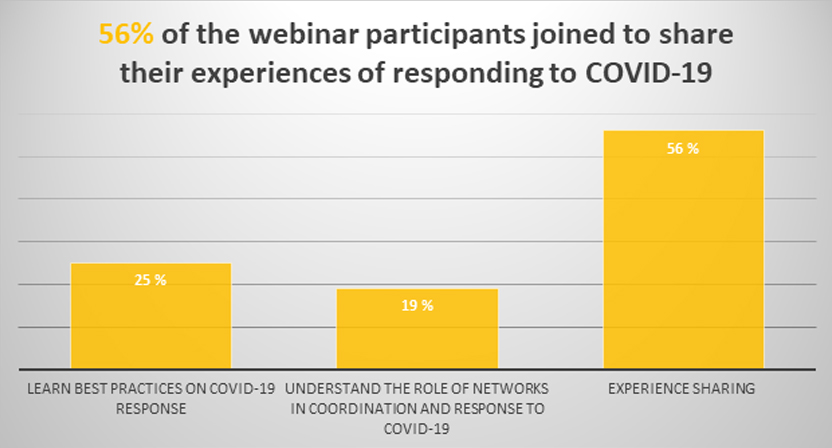
Best Practices on Humanitarian Coordination in COVID-19
As highlighted in ICVA’s introduction, the network’s current work is aligned under its four main focus areas of Forced Migration, Coordination, Financing and Navigating Change, and Covid-19 response. ICVA analyzes and explains new policies, trends and highlights key areas of concern for NGOs to cater to in Covid-19 response. Three briefing papers for Localisation in Covid-19 Global Humanitarian Response have been developed by ICVA recently.
In addition, we are working to influence and advocate by issuing joint NGO statement and collective inputs and feedback on IASC Guidelines such as the Global Humanitarian Response Planning (GHRP) revision process,
shared Qingrui.
Speaking at the webinar, Hafiz Amirrol said,
ADRRN members have been working hard to support people in need at this difficult time and have taken local initiatives to provide health and livelihood support to respective communities. This situation survey documents local initiatives and action taken by ADRRN member organizations in the region in supporting their local and national government to cope with this pandemic. Moreover, ADRRN as a network advocates and promotes the idea of close coordination to the members and consequently we see positive progress of members. By promoting tangible and intangible knowledge and information, members capture and document experiences of good practices in different formats including print and digital media.
The Humanitarian Forum Indonesia (HFI) has also aligned a series of strategic plans to respond to COVID-19. The forum has initiated coordination and communication with internal members and their networks with the government’s Task Force on COVID-19 Response Acceleration at the national and local level (provincial and city/district level). HFI has also introduced a joint need assessments and networking with strategic partners to hold dialogues with UN agencies, the private sector and donor organisations in order to respond to the needs of the most vulnerable communities in this difficult time. Dear NB further added,
HFI has developed a guideline on Safety and Security of humanitarian workers and volunteers for HFI members and their networks. Media centers have also been set up within members to act as helplines and complaint response mechanisms to cater to the complaints and feedback of the community and the general public.
Participants’ Insights
Humanitarian practitioners attending the webinar were encouraged to share some of their reflections to promote effective coordination during COVID-19 response plans and activities:
- There is a need to develop policies and strategies for effective and productive education especially for communities with limited access to mobile phones and internet
- Localisation is important, particularly in terms of better understanding the communities’ culture, geographic profile and trust. International support can provide technical support and resources to local organisations to meet the needs of local communities
- Digital Platforms have proven to be one of the most effective mediums to engage people and jointly hold interventions to respond to the needs of communities
- INGOs can play a role in buffering donor compliance requirements and supporting skills, programming and governance gaps that some local NGOs have
- The collaboration of local actors during the initial days of the pandemic must be valued and those local actors who are already on the ground long before any emergency strikes must be recognized

